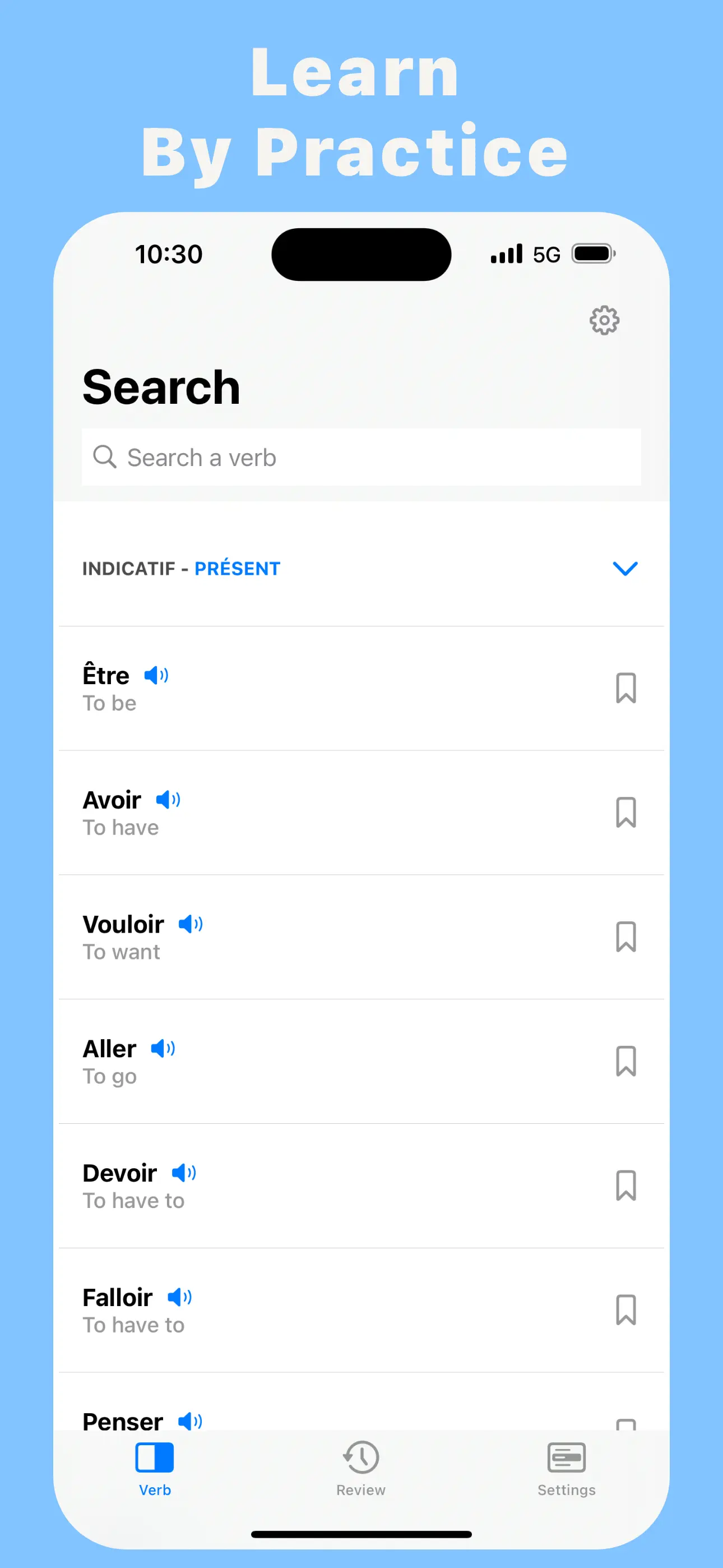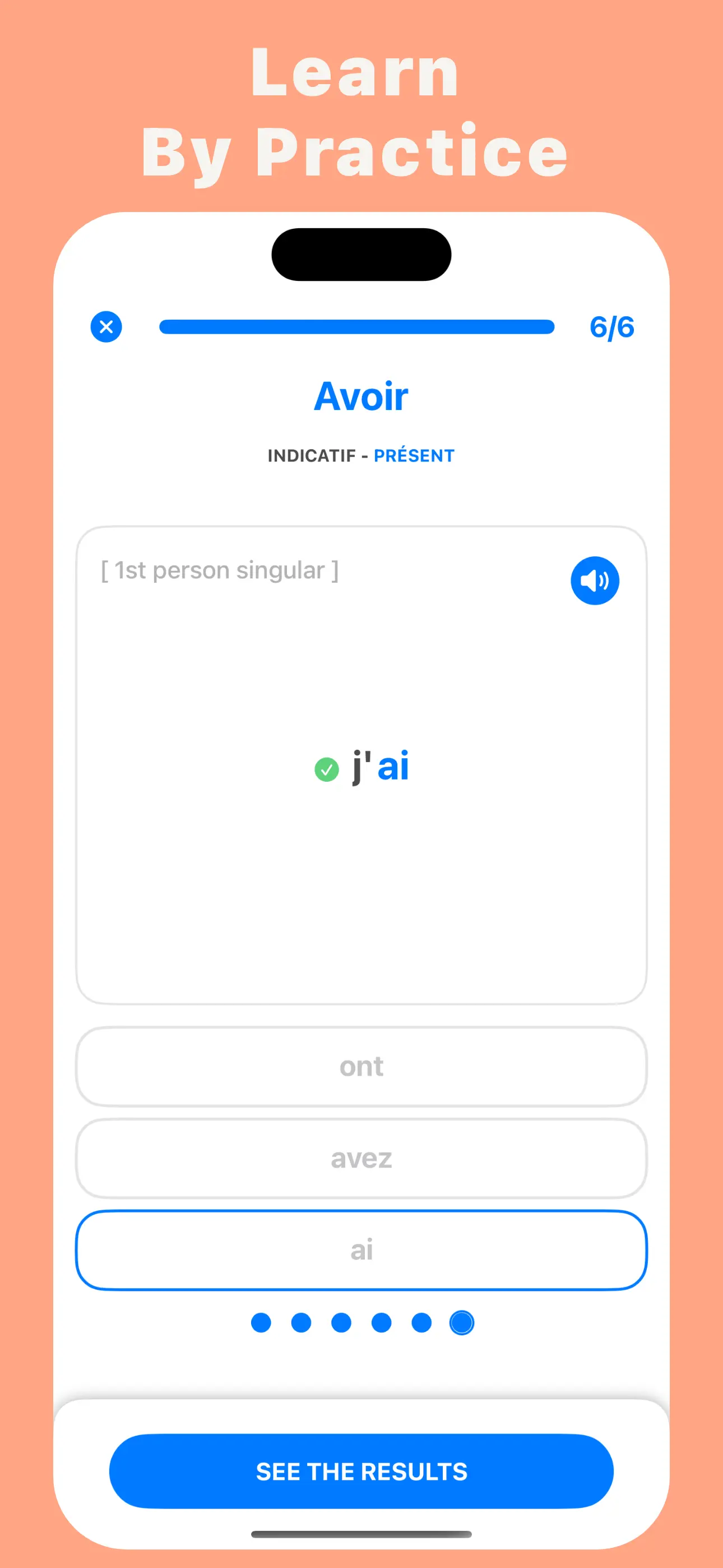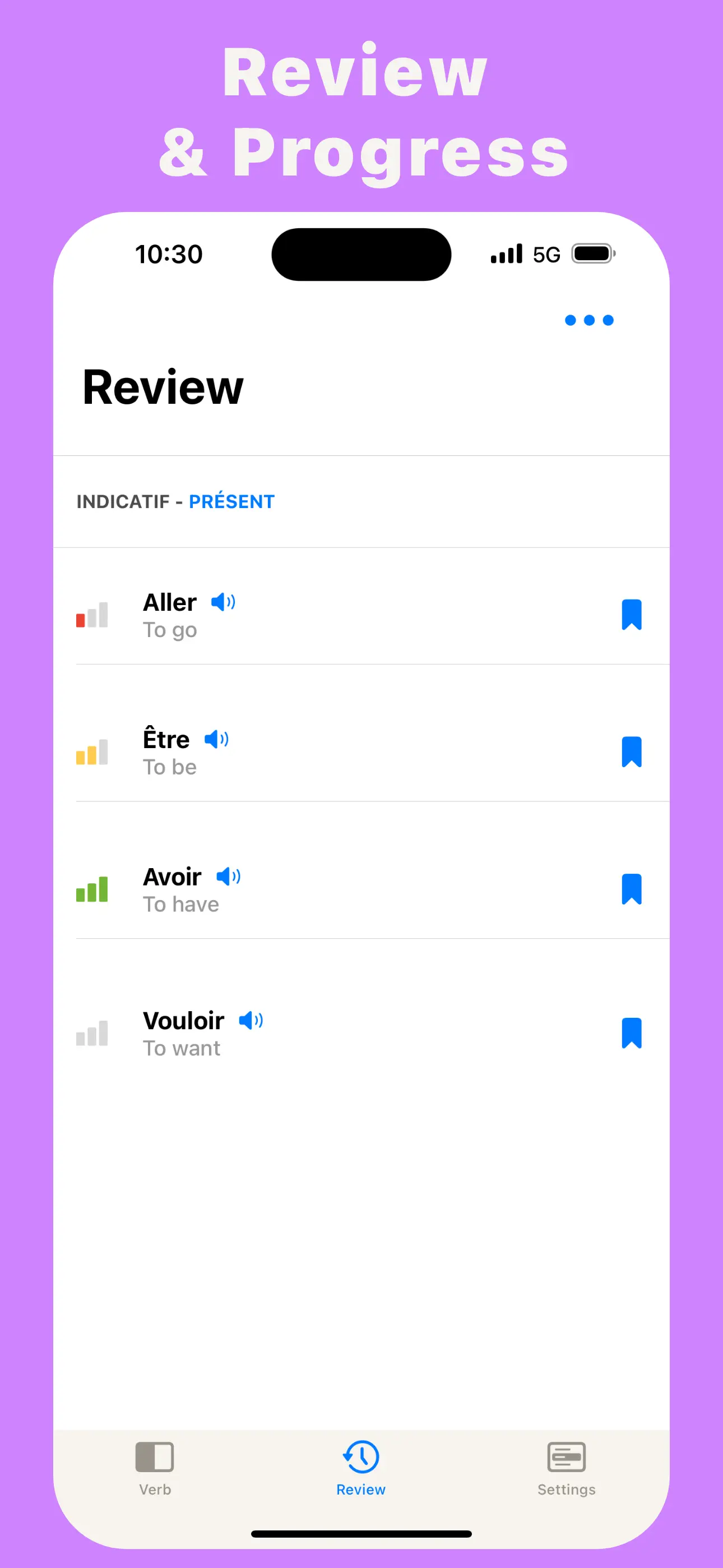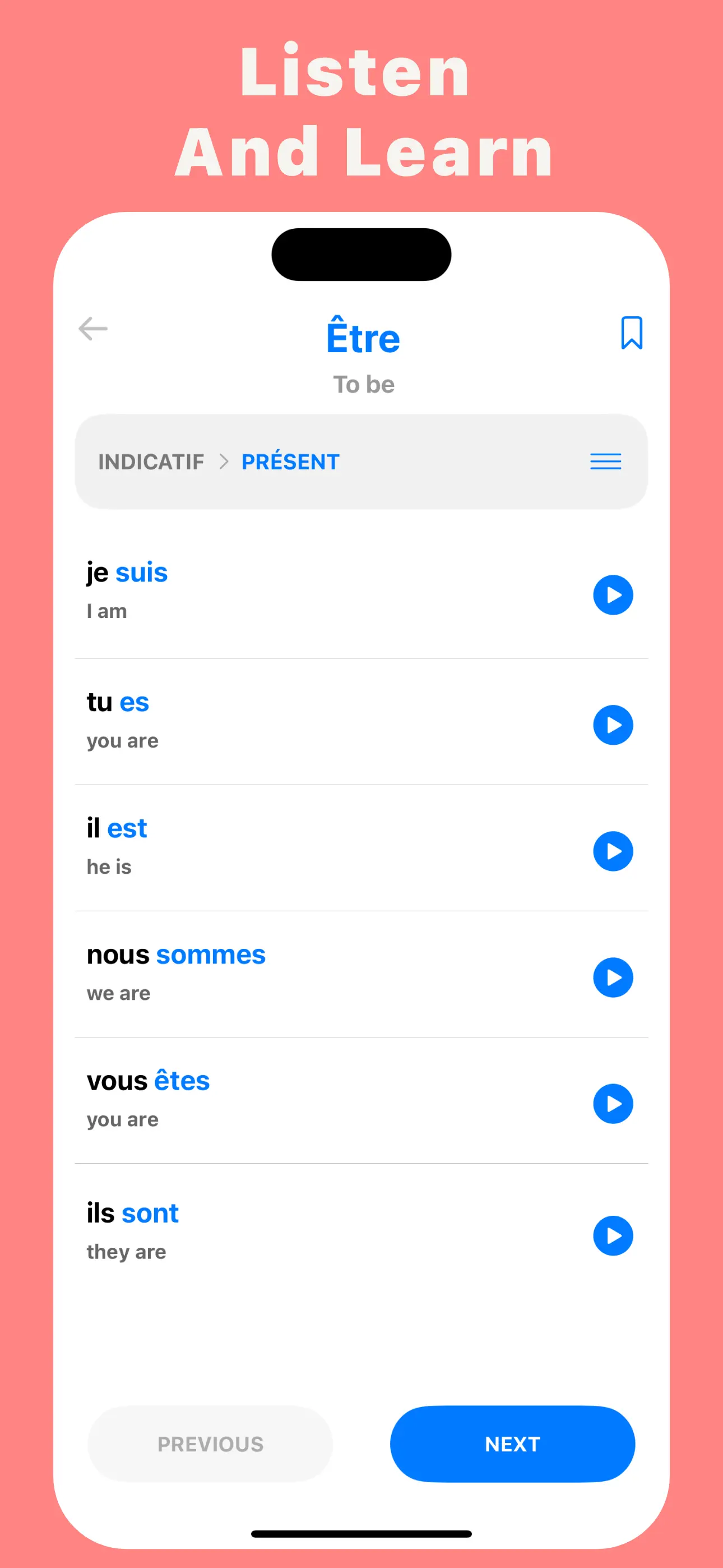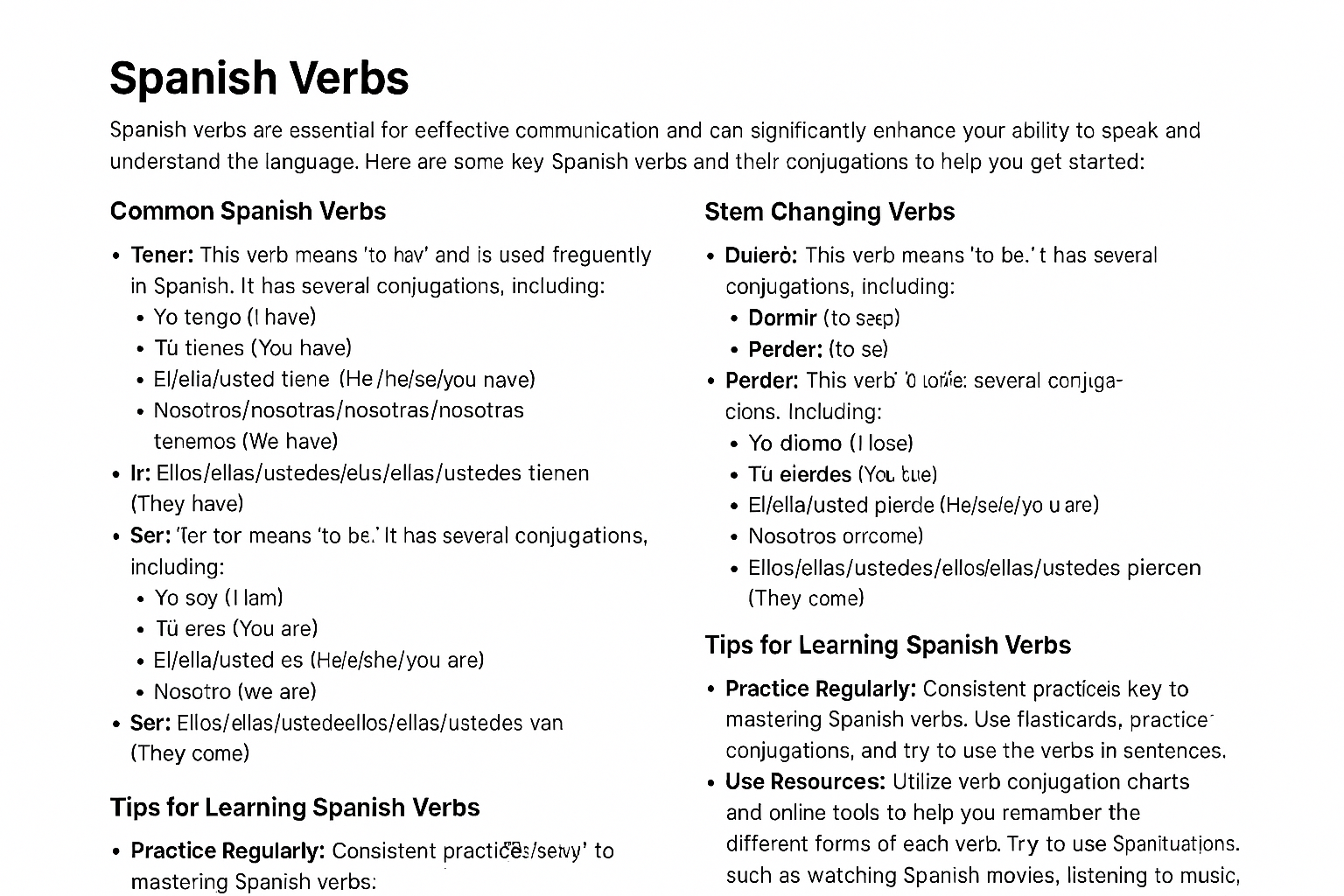
Mastering Common Spanish Verbs: Essential Conjugations and Usage Tips for Beginners and Language Learners
Spanish Verbs
Spanish verbs are essential for effective communication and can significantly enhance your ability to speak and understand the language. Here are some key Spanish verbs and their conjugations to help you get started:
Common Spanish Verbs
- Tener: This verb means ‘to have’ and is used frequently in Spanish. It has several conjugations, including:
- Yo tengo (I have)
- Tú tienes (You have)
- Él/ella/usted tiene (He/she/you have)
- Nosotros/nosotras/nosotros/nosotras tenemos (We have)
- Ellos/ellas/ustedes/ellos/ellas/ustedes tienen (They have) ?9
- Hacer: This verb means ‘to do’ or ‘to make! It has multiple uses and meanings, including:
- Yo hago (Ido)
- Tú haces (You do)
- Él/ella/usted hace (He/she/you do)
- Nosotros/nosotras/nosotros/nosotras hacemos (We do)
- Ellos/ellas/ustedes/ellos/ellas/ustedes hacen (They do) “
- Ir: This verb means ‘to go.’ It has several conjugations, including:
- Yo voy (1g0)
- Tú vas (You go)
- Él/ella/usted va (He/she/you go)
- Nosotros/nosotras/nosotros/nosotras vamos (We go)
- Ellos/ellas/ustedes/ellos/ellas/ustedes van (They go) “
- Venir: This verb means ‘to come. It has several conjugations, including:
- Yo vengo (I come)
- Tú vienes (You come)
- Él/ella/usted viene (He/she/you come)
- Nosotros/nosotras/nosotros/nosotras venimos (We come)
- Ellos/ellas/ustedes/ellos/ellas/ustedes ven (They come) “
- Ser: This verb means ‘to be.’ It has several conjugations, including:
- Yo soy (lam)
- Tú eres (You are)
- Él/ella/usted es (He/she/you are)
- Nosotros/nosotras/nosotros/nosotras somos (We are)
- Ellos/ellas/ustedes/ellos/ellas/ustedes son (They are) “
Stem Changing Verbs
- Dormir: This verb means ‘to sleep.’ It has several conjugations, including:
- Yo dormo (I sleep)
- Tú dormis (You sleep)
- Él/ella/usted duerme (He/she/you sleep)
- Nosotros/nosotras/nosotros/nosotras dormimos (We sleep)
- Ellos/ellas/ustedes/ellos/ellas/ustedes duermen (They sleep) “
- Perder: This verb means ‘to lose.’ It has several conjugations, including:
- Yo pierdo (I lose)
- Tú pierdes (You lose)
- El/ella/usted pierde (He/she/you lose)
- Nosotros/nosotras/nosotros/nosotras perdemos (We lose)
- Ellos/ellas/ustedes/ellos/ellas/ustedes pierden (They lose) “
Irregular Verbs
- Quiero: This verb means ‘to want. It has several conjugations, including:
- Yo quiero (I want)
- Tú quieres (You want)
- El/ella/usted quiere (He/she/you want)
- Nosotros/nosotras/nosotros/nosotras queremos (We want)
- Ellos/ellas/ustedes/ellos/ellas/ustedes quieren (They want) “
- Voy: This verb means ‘to go.’ It has several conjugations, including:
- Yo voy (Igo)
- Tú vas (You go)
- Él/ella/usted va (He/she/you go)
- Nosotros nosotras nosotros nosotras vamos (We go)
- Ellos/ellas/ustedes/ellos/ellas/ustedes van (They go) 99
Tips for Learning Spanish Verbs
- Practice Regularly: Consistent practice is key to mastering Spanish verbs. Use flashcards, practice conjugations, and try to use the verbs in sentences.
- Use Resources: Utilize verb conjugation charts and online tools like Conjuga to help you remember the different forms of each verb.
- Immerse Yourself: Try to use Spanish in real-life situations, such as watching Spanish movies, listening to music, or having conversations with native speakers.
For an even more interactive experience, download the Conjuga app on the App Store — a powerful tool designed to help you master Spanish conjugation on the go.
By learning these common and irregular Spanish verbs, you’ll be well on your way to speaking and understanding the language more effectively.
